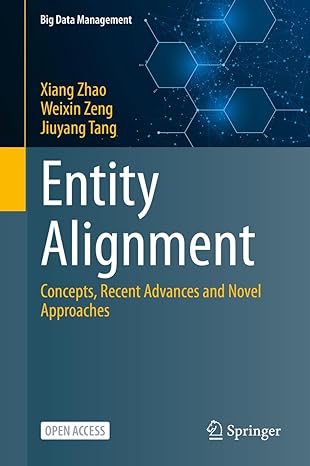Question
/** IDCard.java A IDCard object has a name and a few methods to get the name and format the card. It never expires. There are
/** IDCard.java A IDCard object has a name and a few methods to get the name and format the card. It never expires.
There are two todo regions ... one for the default constructor and one for the toString method. */ class IDCard { private String name; /** A default constructor method that initializes name to "unknown" */ public IDCard() { name = "unknown"; } /** A constructor method that initializes name to the given parameter name1 @param name1 the given name */ public IDCard(String name1) { name = name1 ; } /** Accessor method for the name @return the name */ public String getName() { return name; } /** Tests whether the card is expired. @return false, since this type of card is never expired */ public boolean isExpired() { return false; } /** Produces a string representation of the object Note: use getClass().getName() for "IDCard" so that the subclass name will be correct. @return a string representation */ public String toString() { //-----------Start below here. To do: approximate lines of code = 1 //-----------Start below here. To do: approximate lines of code = 1 // 1. something like: "IDCard[name = Joe Turner]" //-----------------End here. Please do not remove this comment. Reminder: no changes outside the todo regions. //-----------------End here. Please do not remove this comment. Reminder: no changes outside the todo regions. } }
class CreditCard //-----------------End here. Please do not remove this comment. Reminder: no changes outside the todo regions. //-----------------End here. Please do not remove this comment. Reminder: no changes outside the todo regions. { private String id ; private int expirationYear ; /** A default constructor method to initialize id to "000000" and expiration year to 0 */ public CreditCard() { super() ; id = "000000" ; expirationYear = 0 ; } /** A constructor method that initializes name, id and expiryYear with given values @param name1 the given name @param id1 the given id @param expiryYear the year the card expires */ public CreditCard(String name1, String id1, int expiryYear) { //-----------Start below here. To do: approximate lines of code = 3 //-----------Start below here. To do: approximate lines of code = 3 // 3-5. fill in this constructor and use the super call to initialize the inherited variables - see class IDCard //-----------------End here. Please do not remove this comment. Reminder: no changes outside the todo regions. //-----------------End here. Please do not remove this comment. Reminder: no changes outside the todo regions. } /** Tests whether the card is expired. @return true if the current year is after the expiration year */ public boolean isExpired() { java.util.Calendar calendar = java.util.Calendar.getInstance() ; int currentYear = calendar.get(java.util.Calendar.YEAR) ; return expirationYear < currentYear ; } /** Gives a String representation for the card and instance variables @return the String representing this card */ public String toString() { //-----------Start below here. To do: approximate lines of code = 1 //-----------Start below here. To do: approximate lines of code = 1 // 6. something like: "CreditCard[name = Joe Turner][id = 1342343, expires 1999]" and use the super call //-----------------End here. Please do not remove this comment. Reminder: no changes outside the todo regions. //-----------------End here. Please do not remove this comment. Reminder: no changes outside the todo regions. } }
/** CreditCardTester -- to test the CreditCard class in which you have to write a default constructor, a constructor with parameters and a toString method. Change nothing here. */ public class CreditCardTester { public static void main(String[] args) { IDCard card ;
card = new CreditCard() ; // NOTE: this will automatically execute the toString() method of class CreditCard System.out.println(card) ; System.out.println("CreditCard[name = unknown][id = 000000, expires 0] WAS EXPECTED.") ; System.out.println(card.isExpired()) ; System.out.println("true WAS EXPECTED.") ;
card = new CreditCard("Jane Doe", "123456", 1996) ; System.out.println(card) ; System.out.println("CreditCard[name = Jane Doe][id = 123456, expires 1996] WAS EXPECTED.") ; System.out.println(card.isExpired()) ; System.out.println("true WAS EXPECTED.") ;
card = new CreditCard("Justin Time", "11223344", 2019) ; System.out.println(card.isExpired()) ; System.out.println("false WAS EXPECTED.") ; } }
Step by Step Solution
There are 3 Steps involved in it
Step: 1

Get Instant Access to Expert-Tailored Solutions
See step-by-step solutions with expert insights and AI powered tools for academic success
Step: 2

Step: 3

Ace Your Homework with AI
Get the answers you need in no time with our AI-driven, step-by-step assistance
Get Started


